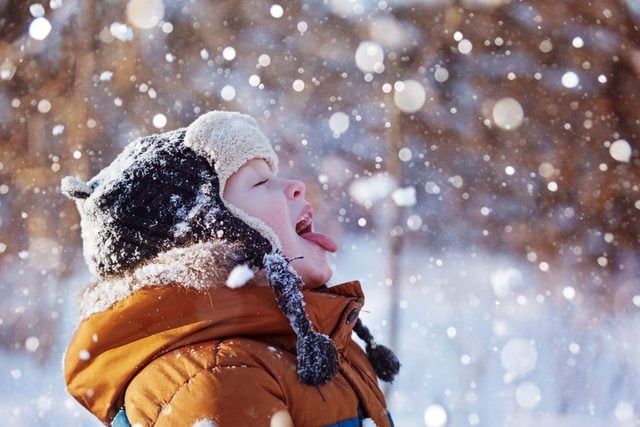The Science-Backed Reason Why You Can “Smell” Snow
An olfactory scientist weighs in.
When you step outside one cold winter day, a familiar scent fills your nose. You can’t explain why, but you know that it can only mean one thing: snow. No, it’s not just your imagination; the air really does smell different right before it snows. According to olfactory scientist Pamela Dalton, that unmistakable snow “scent” can be boiled down to three things: cold weather, humidity, and a stimulated nerve in your brain.
First things first: the weather. As temperatures drop to freezing, the molecules in the air slow down, making certain smells less pungent. In other words, what you think you smell as snow is actually just a lack of the usual outdoor odors.
But that’s not the only factor at play. Like rain and sleet, an impending snowstorm increases the humidity in the air. And while that humidity is what causes the flakes to fall, it also boosts your olfactory system, making your nose feel warm and moist. You probably associate that sensation with the anticipation of snow.
Lastly, the scent of snow is also linked to the stimulation of your trigeminal nerve. Although it is separate from your olfactory system—and typically only interprets sensations like mint and spices—this nerve gets turned on when you breathe in cold air, too. That’s also why our brains link snow with a distinctive “scent.”
So in the end, you can thank the cold weather, the humidity, and your own nervous system for the unique sensory experience of good, old-fashioned snowstorm.
[Source: Mental Floss]




